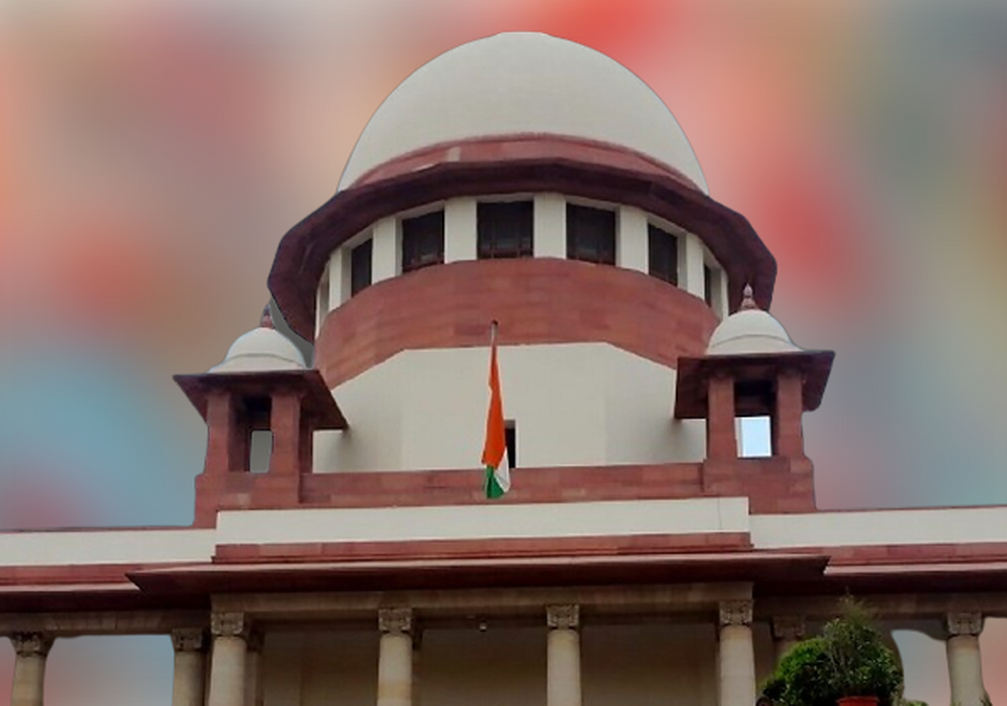Perverse approach of First Appellate Court in arriving at findings based on conjectures & surmises would give rise to substantial question of law, thereby justifying High Court to interfere with same: SC

Read Judgment: Azgar Barid (d) By Lrs. And Others V. Mazambi @ Pyaremabi And Others
Pankaj Bajpai
New Delhi, February 22, 2022: While hearing an appeal over sustainability of appellate jurisdiction of High Court which was premised on decree of partition and separate possession of suit properties, the Supreme Court has highlighted that perverse approach of the First Appellate Court in arriving at the findings based on conjectures and surmises, would give rise to a substantial question of law, thereby justifying the High Court to interfere with the same.
A Division Bench of Justice L. Nageswara Rao and Justice B.R Gavai observed that when the First Appellate Court has failed to take into consideration the voluminous oral as well as documentary evidence, on the basis of which the trial court had recorded its findings, then High Court has appellate jurisdiction warranting interference on First Appellate Court’s findings.
Going by the background of the case, Mazambi & Others (first eight respondents) filed a suit before the Trial Court seeking partition & separate possession of suit properties. The Trial Court decreed the suit in part, declaring that second respondent was entitled to 7/24th share and third respondent was entitled to 1/8th share in the suit schedule properties. It was further held that the respondents were not entitled to any share in suit items. Vide the said judgment and decree, Azgar Barid (first appellant) was directed to render accounts in respect of the receipt and expenditure of the money incurred by him on the suit schedule properties for the period from the date of the suit till the date of effecting actual partition of the suit schedule properties. It was further held that the appellant was liable to divide the profits earned from the properties in favour of second & third appellant to second & third respondent as per their respective shares.
On appeal by the legal heirs of the appeal, the judgment and decree passed by the trial court was set aside by the Appellate Court. On second appeal, the Karnataka High Court restored the judgment and decree passed by the trial court. The Apex Court however, thereafter, remanded the matter to the High Court for disposal afresh in accordance with law. The High Court accordingly held that all the suit schedule properties were required to be divided amongst Azgar Barid and five more respondents. The High Court also held that first & second respondent were not entitled for any share in the suit schedule properties as Rehaman Barid, husband of first respondent and father of second respondent predeceased the propositus i.e., Mohiyuddin Pasha and hence properties were liable to be divided amongst the legal heirs of Mohiyuddin Pasha. Therefore, the present appeal was filed by Azgar Barid, through the legal representatives.
After considering the submissions, the Top Court found that the contention raised on behalf of the appellant with regard to fourth to eighth respondents being not entitled to relief in the second appeal on the ground that they had not challenged the judgment and decree of the trial court before the First Appellate Court, was not sustainable.
Quoting the decision in case of Chandramohan Ramchandra Patil and Others v. Bapu Koyappa Patil (Dead) Through LRs and Others , (2003) 3 SCC 552, wherein it was held that the trial court could grant relief even to the non-appealing plaintiffs and make an adverse order against all the defendants and in favour of all the plaintiffs, the Top Court observed that merely because the trial court had not granted relief in favour of fourth to eighth respondent, would not come in their way in the High Court allowing their claim.
Speaking for the Bench, Justice Gavai observed that High Court found that the voluminous documents of evidence including the birth certificates of fourth to eighth respondent and the transfer certificates issued by the Government Higher Primary School, Thadigol and Higher Primary Boys School, Thadigol, established that fourth to eighth respondents were the children born to Mohiyuddin Pasha through Mazambi @ Pyarembi.
Thus, the High Court rightly interfered with the findings as recorded by the First Appellate Court, inasmuch as the First Appellate Court was not justified in reversing the findings of the trial court in that regard which were based on proper appreciation of evidence, added the Bench.
Accordingly, the Apex Court dismissed the appeal observing that the First Appellate Court had reversed the findings recorded by the trial court which were based upon correct appreciation of evidence.
Sign up for our weekly newsletter to stay up to date on our product, events featured blog, special offer and all of the exciting things that take place here at Legitquest.




Add a Comment